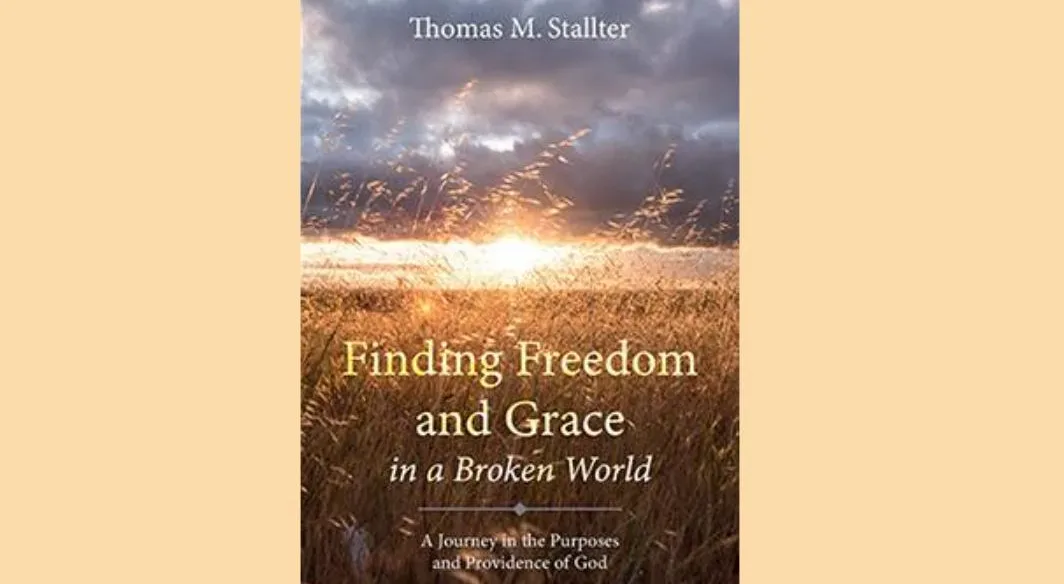WINONA LAKE, IN — We have been brought up to see things in a particular way—to interpret our experience and respond to events, people, and even to God in cultural and personal ways. This has given us a frame of reference that undergirds all else we know, trust, and love in life, as well as all we question, distrust, and hate. But this foundation is not without its cracks. We live in a broken world, and it has influenced us more than we know.
Various Christians give us advice, but we often find ourselves stuck in the emotional pain of past experiences. We may not realize how much it controls our thinking, and we wonder why we are unable to experience the freedom and peace Jesus talks about. But things are not always what they seem; we need to see them as they are, not as other influences have shaped them.
It is time we let God speak for himself on the matter. This book turns our minds to trust and freedom in our walk with God. It leads us to know God’s grace, providence, and purposes in a way that changes our lives and experiences in this broken world from this day on.
“Finding Freedom and Grace in a Broken World is a comprehensive, exhaustive exploration, a deep dive into the world of knowing and trusting the God of Scripture. It examines divine grace from every imaginable perspective through 234 brief, easily digestible essays.”
— Michael Card, author of Inexpressible:
Hesed and the Mystery of God’s Lovingkindness
“Are you seeking answers to life’s deeper questions? Perhaps you are tired of superficial answers that scratch the surface of life’s concerns, but do not satisfy your profound issues. If so, I suggest you read Finding Freedom and Grace in a Broken World. This book will touch your mind, heart, and emotions. I’m certain you’ll contemplate its teachings long after you have read the chapters. It’s a proverbial gold mine for the soul.”
— Gary L. McIntosh, distinguished affiliate professor of Christian
ministry and leadership, Talbot School of Theology, Biola University
“Finding Freedom and Grace in a Broken World invites the reader to examine implicit values shaped in the soul by cultural assumptions of Western Christianity. The book stretches us to move beyond a performance-based Christianity to a deeply trust-based relationship with God himself. This multifaceted book with various entries covers well the gamut of the Christian life, written from the heart of a seasoned coach and a caring soul mentor.”
— Christy Hill, professor of spiritual formation and
women’sministry, Grace College and Seminary
About Thomas M. Stallter
 Thomas M. Stallter is professor of intercultural studies at Grace Theological Seminary in Winona Lake, Indiana, where he has taught for twenty-five years. He previously spent eighteen years in pastoral training, church planting, relief work, and business as a missionary in the Central African Republic and Chad. He is the author of The Gap between God and Christianity: The Turbulence of Western Culture (Wipf & Stock, 2022).
Thomas M. Stallter is professor of intercultural studies at Grace Theological Seminary in Winona Lake, Indiana, where he has taught for twenty-five years. He previously spent eighteen years in pastoral training, church planting, relief work, and business as a missionary in the Central African Republic and Chad. He is the author of The Gap between God and Christianity: The Turbulence of Western Culture (Wipf & Stock, 2022).
###
Interview with Thomas M. Stallter
What is the purpose of writing this book now?
We are entering one of the darkest times in our history as a country. Never has the attack on life and morality been greater. Our society is trying to silence God. In the midst of this crisis, I am finding that many Christians are confused about what to believe, about what God says, and how to live for him. They are not confident in their faith. We must each play our part in strengthening each other in our understanding of God’s ways and trust in his providence amid the crumbling values of our society. We truly live in a broken world and it becomes more evident every day. Our faith must be stronger, our gratitude for his grace deeper, and our living for his purposes more far-ranging.
How does your book speak to this situation?
There is confusion about what God is saying to us in the Bible about how we are to handle our anxiety, fear, guilt, uncertainty, and confusion. This book seeks to help Christians grow in their knowing God and his ways, trusting his grace, purposes, and providence on their journey in our present situation. Though there is mystery in God for which we must trust him, there is also a freedom in Christ that eludes us, a peace that often feels just out of reach. But these blessings are ours, already given but yet to be owned because we are distracted by our self-concerns. There is a rest we must enter by trusting the God of grace.
How do you want this book to change Christians and Christianity?
In this book, I want to help Christians understand more about God’s lavish grace, his unbending purposes, his good providence, and his unrelenting love for believers. I want us to grow in our trust in God and experience more freedom in Christ. I want the church to be less divided over non-essentials and less legalistic in doctrine as well as more discerning about what cultural values they welcome into the church. The book is intended to help Christians reach a healthy maturity in Christ, to deal with anxiety, have a perspective that gives faith and hope in suffering, and experience confidence and peace in their relationship with God.
What is your approach to this in the book?
As the title says, I am attempting to help people experience God’s grace and its freedom as they understand more of his purposes and providence in this broken world. The book gives us a good deal of information on all of this in 234 short, readable segments. It is easy to read one before you start the day. It can be read from beginning to end over a year, topically out of need or interest, or with a spouse or friend. There are on average twenty biblical references with each topic so you can go to the Bible to see more and go deeper. I see it as a starting place for us each day in our journey in the purposes and providence of God.
How would you suggest people approach the Bible?
I think, first of all, we have to let God speak for himself. If we let the pressure of our cultural values or the urgency of personal preferences become our hermeneutic, our measuring stick, we are asking the Bible to tell us what we want to hear. We limit what God can say to us. We need to be relevant in the expression of our faith in our situation, but we must draw a line between cultural relevance and relativism, between relevance and cultural syncretism. I think it is obvious what happens when we limit God to our personal preferences.
Do you have a summary comment or two about why we should read Finding Freedom and Grace in a Broken World?
It is time to let biblical values shape our inmost thoughts and desires, and go deep into our relationship with the Creator, the God of grace, the lover of our souls. It is time to think about ourselves in this relationship— our values, beliefs, and assumptions and how they may interfere with this bonding already begun by God but held back by our weak faith and our clouded understanding. We were meant for more but we have yet to fully understand the flood of his grace, the granite peaks of his decrees, and his far-reaching providence preparing us in our situation for his purposes. We must know more about dealing with fear, injustice, and anxiety, more about how he answers prayer, and more about what to expect of his providence. We lose so much if we wait. We must move ahead without delay and regain the full benefit of our birthright in Christ damaged by unbiblical cultural values, fear for self-survival, and the Enemy himself.
###

